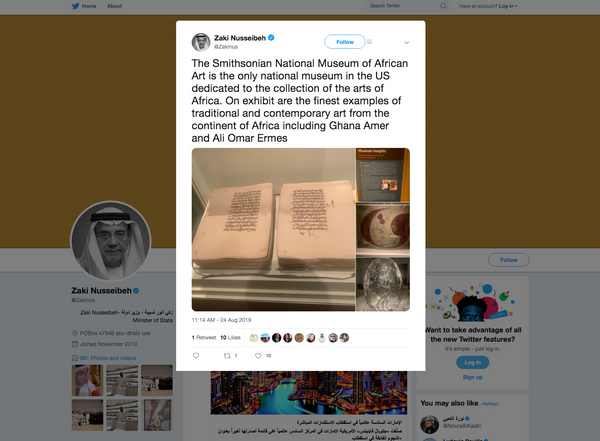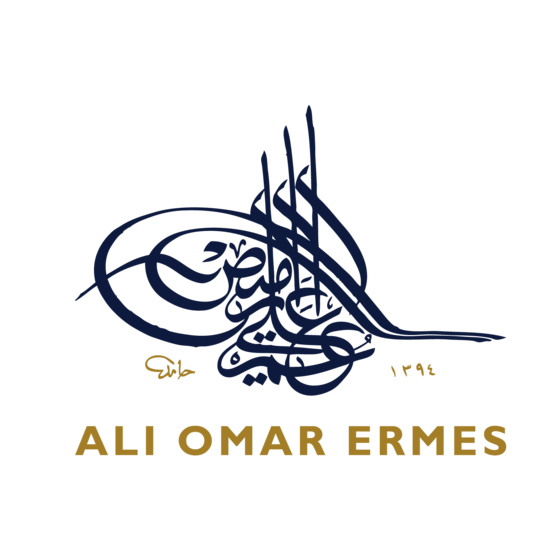Gulf Courses
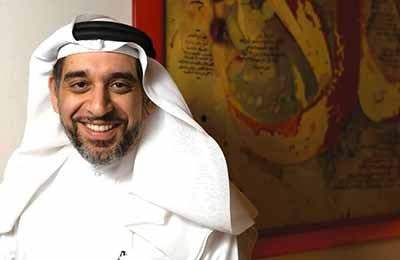
Family life is extremely private in the Gulf. In a way, it is not surprising that people who dress so conservatively, with women shrouded in black and men cloaked in white, should be so guarded in showing a public face.
In the same way, family businesses in the Gulf Cooperation Council, which make up the vast majority of the successful corporations there, are curiously reluctant to share their successes with the press. For this reason, the willingness of Mishal Kanoo, deputy chairman of the GCC-based Kanoo Group, to speak to CampdenFB, is all the more remarkable.

The notorious tight-lippedness of the GCC’s people about family concerns has often been remarked on. Kanoo says the element of secrecy that surrounds business dealings must often be taken into account and adds that some of the region’s family don’t know how to express themselves to the international press.
This does not prevent him, however, from behaviour that might be regarded as unusual by his peers, from throwing open the doors of his sumptuous offices in Bur Dubai, the epicentre of the trade hub that is Dubai, for a frank discussion of the issues of the day.
On an April Sunday morning, the first day of the business week, two of the group’s most senior managers guard the entrance to his offices, peering impassively over large computer screens to monitor the comings and goings of visitors. Kanoo gets up from his desk to offergreeting, adjusts his cream-coloured ghutra, or headscarf, and igal, the black cord that holds it in place, and relights a sizeable cigar. He says he must finish sending a text message to his wife, and remarks on the importance of a stable family life.
At 44, he displays an intriguing blend of traditional Middle Eastern reserve and western outspokenness. Kanoo has been vocal in his defence of the importance offamily name to the success of Arab businesses, the trust that underpins their dealings, and the danger of maverick family members destroying their relatives’ reputations to satisfy their own short-term greed.
Kanoo was groomed from an early age for the most important positions in the family business, one of the Gulf’s oldest. He grew up in the United Arab Emirates and obtained two MBAs, one in finance from the University of St Thomas, in Texas, and one from the American University of Sharjah. He began his professional life as an auditor with Arthur Andersen in Dubai, before taking up his present position in 1997. He has also taught a course on family business at the American University of Sharjah, and is a staunch advocate of the importance of education to Gulf life.
The Kanoo Group’s roots are firmly embedded in the fabric of Bahrain. As an Emirati citizen, Kanoo remains fiercely loyal to the company’s Bahraini roots. “There are a dozen [family members] active in the company’s management today,” he says. It’s clear that, like his relatives, he never loses sight of the fact that the company’s origins are located in the old country. “The Yusuf Bin Ahmed Kanoo Group of Companies is greatly respected for the ability to combine traditional values with a global vision and has always been linked to the progress and development of the entire region,” the company’s corporate website says. (Bahraini architecture pictured, left.)

“We supply all the national oil companies, from Sabic [Saudi Arabian Basic Industries Corporation] to Aramco [The Arabian-American Oil Company],” he says. “It could be drill bits, gen-set boxes or thermal imaging. We have a large understanding of their needs.”
As a logistics specialist, Kanoo can’t help digressing in praise of Dubai Ports World (pictured, right), the international port operator that was the world’s third-largest according to the 2011 Drewry Shipping Consultants’s Top 10 global and international terminal operators. “DP World is one of the success stories of Dubai. They have done a superb job of putting Dubai on the map,” Kanoo says.
Other companies that have been successful ambassadors for Dubai, he believes, are Jumeirah Hotels, Emirates and Dubal. “These are companies on a global scale,” he says. “DP World is not seen by the normal consumer. They have played a significant role in all of the countries they serve. They are one of the most successful companies to be created in the Arab world.”
Kanoo won’t be drawn on company financials. As a general rule, these are not a matter of public information. “I’d love to talk about them,” he says wistfully. “It would be a lovely marketing story. But that’s family policy.” When pressed on whether the company is profitable, he opts for a quizzical “Alhamdulillah…” (“All praise to God…”) However, he does add: “We have seen consistent profits for a long period of time. They did get dented by the global financial crisis.”
In terms of expansion, the company is conservative, preferring to stick to core operations. “For preferred areas of expansion, we are not 100% integrated horizontally or vertically. We don’t necessarily look at going outside our core areas.” He gives a tantalising hint about the success of the group in recent years. “I’m not saying we close doors [to new opportunities], [but] I know how much profit we make. We consciously look at new business, but when you are making profit margins of 25-50%, why look at something else? You can only stretch resources so far.”
Continuing operations are clearly more than enough to sustain company growth. The company has a “large war chest” if new finance needs to be raised, he says. “Bank finance is not the first thing we think of.” The family will retain firm control of the business in the future and Kanoo is unequivocal about its succession policy. “We’ve already planned who’s going to take over. It’s set down on paper. We have spoken clearly and it’s stated and written.”
Future plans inevitably raise the question of how to broaden the base of the company, but Kanoo is non-committal on the issue of an initial public offering. “I don’t necessarily have to go public to create a situation that is good for profits. It is an issue for the family.”
Kanoo is well placed to comment on the prospects of GCC growth and the implications of the global economic crisis on the region’s fortunes. “We have seen a recovery since 2009,” he says. He expects growth of between 5 to 15% in the Gulf in the next five years, depending on which part of the region is being talked about. “Growth has not and will not recover [to pre-2008 levels]. It was mad.”
The global financial crisis taught businesses in the GCC about the impossibility of property values increasing forever at unsustainable rates: Kanoo is quick to confirm that at the height of the economic boom, which saw Dubai emerge as the world’s newest global city, one quarter of the world’s tower cranes were located in the UAE. “We learned quickly. Curbs ensured that business could continue. The banks were victims of their own success, and victims of their own failures. They did not understand good governance. Nobody wants to be the policeman. The way the banks acted, it was a case of: ‘Either you were taking your customers for fools, or you know something I don’t know.’”
For an Emirati, Kanoo is unusual in his adherence to the belief that the GCC has more financial hubs than just Dubai. He believes that the GCC derives strength from having so many financial centres. Of late, Dubai has led the way, with Abu Dhabi and Doha playing supporting roles. But these cities are not the region’s historic financial hubs, he says. “Bahrain and Beirut were playing this game for the longest time. It doesn’t affect you negatively to have strong neighbours. Having three or four or five financial hubs is never a bad thing. You can have a productive or a destructive rivalry. It doesn’t do good to see any of these cities fail.”
On Bahrain’s domestic situation, Kanoo asks one question of the opposition Al Wefaq National Islamic Society, the group fighting the Sunni-dominated government for improved working and living conditions for the island’s Shiite majority. “I don’t know what their end goal is. Do they want to be part of the government? The government? To topple the government? The pure economic argument [to provide jobs for the unemployed] has been hijacked by the Al Wefaq organisation.”
In musing over the efforts to provide better economic conditions for all in Bahrain – a key criticism levelled by the Shiite political party at the Bahraini government – Kanoo cites a traditional Arab proverb, rasmal juban – or “money is a coward.” He believes that “no one parts with his money in a place he believes it’s going to be lost. To invest, money needs political stability.
“They could get their point across by clearly stating what they want. But how are they going to get it? I’m not saying the government is completely and utterly innocent, as the King said himself. I’m not saying you shouldn’t have [an] opposition. If they really wanted to create jobs, they would draw up a list and get their point across by clearly stating what they want and how they are going to get it.”
Kanoo speaks of the weight of responsibility of being in a key role in the running of a major Gulf family business. “Today I am happy to be in a position where I can get things done. They say ‘You have authority,’ but that comes with responsibility to family and the people who work for you, the community and society. You don’t take the money and go off and play with it. You have to keep up the family name. Any family name needs to be protected and respected. I am burdened by it. It might affect my family’s standing. There is a give and take.” (Dubai’s burgeoning skyline pictured, left.)
Kanoo Art
Wealth generated from Dubai’s unprecedented property boom, in the decade to 2008, led to substantial demand for art among Dubai’s new moneyed, villa-domiciled class.
This interest from well-heeled, Gulf-based collectors gave Arab artists, particularly those based in countries such as Egypt, Lebanon, Syria and Palestine, the chance to develop their oeuvres. As a result, the art scene in the GCC has flourished, with events magazine Time Out Dubai listing 134 art galleries in the city alone. (A detail of “Temple of Gem” a work by Egyptian artist Khaled Hafez.)
Dubai is not the only hub fostering interest in art. The Museum of Islamic Art opened in Doha, Qatar, in 2008, and in 2009 a major exhibition of Islamic works of art was staged at the Emirates Palace Hotel in Abu Dhabi, with many of the exhibits, some from as early as the first century of Islam (c. 630-730), on loan from Turkey.
Mishal Kanoo is one of the most influential figures in the development of Dubai’s art scene and is matter-of-fact about his passion for collecting. “In an ugly world where I cannot control anything, spreading a bit of beauty is never a bad thing,” he says. Pride of place in his office goes to a painting of Cuban revolutionary Che Guevara by the Bahraini artist Jamal Abdul Raheem (pictured, left).
Kanoo cites artists from all over the Arab world as particular favourites. “I am an eclectic collector. The only running theme in what I collect is aesthetic beauty. There are a few Arab artists that I like and collect. Ali Omar Ermes (Libya), Abdulla Al-Muharraqi (Bahrain), Nja Mahdaoui (Tunisia) and Abdul Qader Al-Rais (UAE) are but a few names [whose art] I love collecting.”
Kanoo is something of a purist. “Unfortunately most people in the Middle East think of art as an investment. When you invest, you feel no passion [or…] emotion… Art is about passion and irrationality.”
One of the ventures Kanoo was keen to support as a founder was the creation in 2007 of the Meem Gallery in Dubai. Kanoo set up Meem with the help of two individuals, Sultan Sooud Al-Qassemi, a member of Sharjah’s royal family and founder of Barjeel Art Foundation, and British curator, Charles Pocock.
“My partner and friend, Sultan, is definitely one of the top collectors [in the region]. Others might be there but I will respect their privacy. Unlike Sultan, they will talk more about themselves when they see fit,” Kanoo says. “In the UAE there are many serious galleries such as Meem, Ghaf and Ayyam to name a few. As to how many galleries are there in Dubai, I am hard pressed to give you a number.”
Family business
The Kanoo Group has its origins in Bahrain, where Haji Yusuf Bin Ahmed Kanoo established the business in 1890. The founder was childless, and two nephews, Hajj Ali, and Jassim, continued the business into the middle of the following decade. As a transfer of activities from local to regional took place between the 1930s and 1970s, two uncles, one paternal, named Ahmed, and one maternal, Mohammed, took over, growing the business from its shipping and trading roots into a diversified firm.
In what Kanoo calls a “stroke of genius,” the family decided to work with the status quo rather than fight it, as around the time of the World War II, the British were in the ascendant in the Gulf, having taken control of a string of protectorates built on the region’s nomad tribal dynasties: Bahrain was envisaged as a future “Singapore of the West.” At the time, British company Gray Mackenzie, which survives to this day in the region as an engineering services concern, won the lion’s share of the contracts, so the ownership of the company decided to move with the prevailing flow and introduce British management to oversee contracts and the winning of new business, Kanoo says.
The geographical reach of the company gradually spread from Bahrain – whose trading links to Indiawere the template – to entrepôts in the rest of the Gulf. In 1967, Hamed Kanoo, having successfully established the family business in Khafji, Saudi Arabia, spearheaded a move by the new entity, the Kanoo Group, into the UAE, where the majority of the business operates today. Over the decades, family members were sent out into the Gulf region, eventually becoming citizens of Saudi Arabia, Oman and the UAE, a big factor in the company’s success. This led to a regional-to-multinational transformation, a “paradigm shift”, which Kanoo says brought in the next generation of the family – three cousins on one side and four on the other. The 1970s oil boom brought a new spurt of growth. Throughout this time, the family has remained firmly in control of the group’s fortunes and is likely to remain at the helm in the future.
The company has three main businesses, logistics, travel and commercial, and two auxiliary arms: joint ventures and real estate. Logistics includes shipping, ship agency, where the company handles 11,000 port calls a year between Suez and India, and freight forwarding, while the commercial arm covers equipment, oil and gas, as well as power and industrial products. Equipment supplied to regional contractors ranges from forklift trucks to cranes, welding machines and different products serving the construction and industrial markets. Kanrent, the company’s equipment rental arm, provides yellow goods to the construction and industrial sectors, with Bobcat and Hitachi among the best-known names. The Kanoo Group also operates offices outside the GCC, in India, Egypt, Sudan, Iraq, the UK and France. Elsewhere, it uses agents.
Leave a comment
Also in NEWS
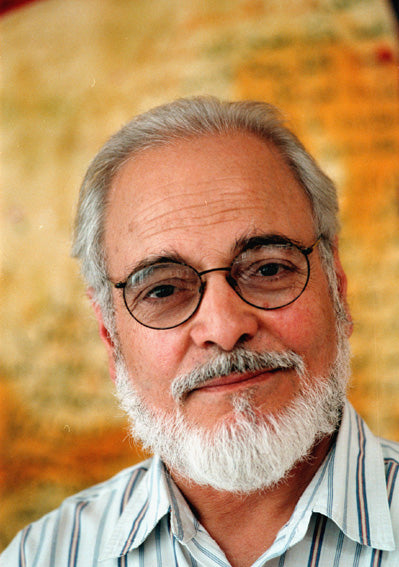
Tributes paid to leading Arab artist, Ali Omar Ermes
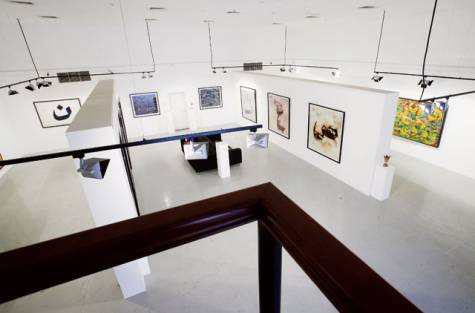
Ali Omar Ermes’ Recent Works to Be Exhibited at Meem Gallery - 10 DECEMBER 2010 - 27 JANUARY 2011
